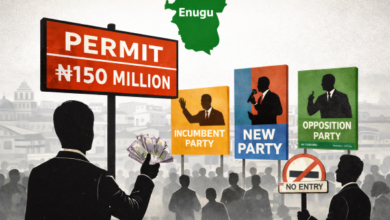MATTERS ARISING CONT’D: Art and life: A National Brand Bids Farewell
Composer of Nigeria’s National Anthem, Pa Benedict Elise Odiase, recently passed on at the age of 79. The former Director of Music and Deputy Commissioner of Police who also composed Nigeria’s national anthem, died at the Lagos University Teaching Hospital (LUTH), Lagos after a brief illness.
As the director of music of the Nigerian Police band, he composed the national anthem; “Arise O Compatriots” in May 1978. He retired in 1992 as a Deputy Commissioner of Police. He thereafter lived a quiet life at his residence in Oregun, Lagos.
Senate resumes third session
The Senate resumes from its seasonal break and will sit for five weeks before embarking on a prolonged two-month break. In the five weeks ahead, Senators would have to confront five serious issues.
Having ended its second legislative year on 6th June, the Seventh Senate resumes its third legislative session and is expected to sit for another five or so weeks before proceeding on a two-month break and is expected to resume on September 24, 2013.
In the last two years the Senate was able to introduce about 160 bills with several in various stages of legislative consideration. Among them are 16 executive bills, the rest being members’ bills. Out of these, 17 bills were passed, 14 were read a second time and referred to relevant committees while two were negatived. The negatived bills were Equipment Leasing Bill 2013 and the Nigerian Search and Rescue Guards (Est.etc) Bill, 2013.
Among these bills to be given consideration within the next five weeks are the 2013 Appropriation Act (Amendment) Bill, Constitution of the Federal Republic of Nigeria 1999 (Alterations) Bill 2013; Electoral Act (Amendment) Bill 2013; Petroleum Industry Bill 2013 and University of Lagos Act Cap UG LFN 2014 (Amendment) Bill.
Banking: FG Approves N750bn for Recapitalisation of Bank of Industry
The Federal Government has given approval for the recapitalisation of the Bank of Industry (BOI) to the tune of N750 billion. General Manager of the bank, Mr Joseph Babatunde, who disclosed this recently said a time frame has however not been set for release of funds. He said that the Ministry of Finance and the Central Bank of Nigeria were working on the modalities for its release.
According to him, under-capitalisation is a major factor challenges militating against the effective performance of the bank “This hindered the bank’s developmental impact and attraction of needed long term funds from international and multilateral agencies. Government, in the last couple of years, has been very proactive in the area of addressing the dearth of long term investable funds required by the manufacturing sector,” he said.
Fashola approves construction of 70 new roads
Governor Babatunde Fashola of Lagos State has revealed that 70 new roads had been approved and awarded for construction and rehabilitation in the state. Fashola while speaking during a courtesy call on him by the NBA, Lagos Branch and Ikeja, said the contract had increased the number of awarded road contracts since the commencement of the second term of his administration to 230.
According to him, his administration has a second term target of constructing more roads in the state. “We set ourselves the target in the second term to complete about 450 roads. Last year, we awarded about 160 roads. This year, we have awarded about 70 roads. This signifies our intention this year that we are more concerned about road construction.”
The governor added that his administration has already completed about half of the roads we set out to achieve stressing that road construction is a work that will outlive every government. “We have already completed about half of the roads we set out to achieve. But again, we can only award that much if we were able to complete much. That was why this year’s project was based on completing the roads in the state. The decision making for which road to deal with first, is based on the road that carries the most traffic. The need continuously outstrips the source and so also they outstrip the capacity. And what we have done this year was to identify the roads that needed urgent repair. And these are continuous engagement and undertaking from the state government. They will never finish in the tenure or life of any government.”
Why Nigeria Didn’t Appeal Bakassi Verdict
President Goodluck Jonathan has explained the reason why his administration did not bow to the clamour by a section of the Nigerian public to appeal the 2002 International Court of Justice (ICJ) judgment that ceded the oil-rich Bakassi Peninsula to Cameroun.
At the recent meeting of the heads of states and governments of the Economic Community of Central African States (ECCAS), the Economic Community of West African States (ECOWAS) and the Gulf of Guinea Commission (GGC), the president told the Nigerian community in Yaoundé, Cameroun, that the federal government did not exercise its right to appeal the judgment because of its desire to protect its citizens living in Cameroun.
He added that the federal government refused to pursue the appeal because it had no fresh evidence to back up its case that would make the ICJ upturn its earlier verdict. “You all know what happened in Bakassi; there is no need to go back on why we couldn’t appeal. We had no new evidence within the period of time that was given that will make a difference in the judgment.”
He urged Nigerians living in Cameroun to live a good and decent life, assuring them that his administration is doing its best to improve the welfare of all and sundry.
GO BACK
















